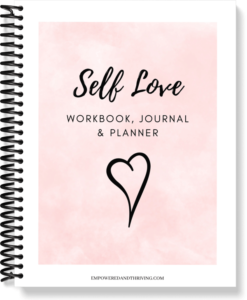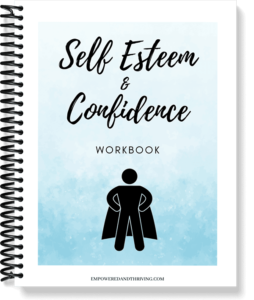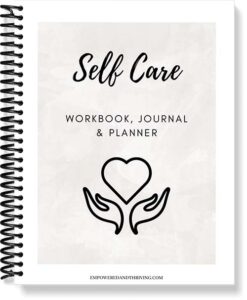Letting people take advantage of you can cause stress, anxiety, and frustration. In some cases, it can lead to depression, hopelessness, and lack of control in our own lives. Every day, we can choose not to make waves and feel this way, or we can stand up for ourselves. If you choose to learn to stand up for yourself and take back control of your life and happiness, then here are some powerful tips that will help.
How To Stand Up For Yourself
1. Stand Up For Yourself By Getting Clear on Your Boundaries

It’s hard to stand up for yourself if you do not know what your boundaries are. Once you know what your boundaries are, you’ll know exactly when it’s time to say something. Start by asking yourself these questions: “What frustrates me?” “What causes me stress?” “Who makes me anxious?” “What things do I regret doing?”.
The answers to these questions serve as clues to where you need to set boundaries. For instance, does it frustrate you that you always bail out your co-worker? Does it make you anxious to talk to certain family members because you know they will ask you for a favor? If so, create a boundary where you will no longer stay after work, or create a boundary where you will not loan family money anymore. These are examples but be specific with your boundaries and write them out. Then decide that you will not let anyone cross them.
2. Remind Yourself You Deserve Respect

Many people let others run all over them because they lack self-respect and struggle with self-worth. It will not matter how many boundaries you set or how clear you are with them if you do not have enough self-respect to keep others from crossing them. You are no less important than anyone else. You deserve the same respect that you give. Build your self-worth and self-respect, and stand up for yourself by learning to appreciate and accept who you are. Self-acceptance is the key to self-worth and self-respect.
3. Get Clear on the Situation

Be 100% sure that the situation requires you to stand up for yourself. Did you hear what someone said correctly? Have you interpreted the situation correctly? Be aware of your triggers and the emotional impact they have on you. Sometimes we get triggered by something, and our emotions immediately kick in. When this happens, we can get tunnel vision and lose sight of the reality of the situation. How many times have you heard a word or phrase and immediately gotten triggered, only to realize later that you misinterpreted what happened? Avoid this by getting clear on the situation. If a boundary has been clearly crossed, standing up for yourself is a must.
4. Pick Your Battles

Remember this advice: keep the peace, don’t make it. That means you have to learn to pick your battles. Just because you can stand up for yourself, doesn’t necessarily mean it’s appropriate. You have to weigh the possible consequences of standing up for yourself. Of course, if it is something major you should hold the line in the sand, but if it’s something you can let go to keep the peace, then let it go and fight another day.
For instance, say you set a boundary at work not to work late anymore, helping a co-worker who takes advantage of you. Then one evening the co-worker asks you to stay behind to finish a major project. You know that if you stand up for yourself then and go home, the project will fail, the company will look bad, and you could possibly face some repercussions as well. In this case, you may decide to keep the peace by staying, instead of trying to make peace later with your boss.
Another example is with your spouse or close family member. You may be faced with a situation when it is better to bend your boundaries than keep them and cause hurt feelings and pain. This doesn’t mean you should bend in every case with a particular boundary, but sometimes it is better to let it go depending on the timing and situation. Pick your battles.
5. Stand Up For Yourself By Saying “No” More

Saying “yes” all the time and people pleasing will do nothing but cause stress, anxiety, and frustration. Stand up for yourself by saying “no” more often. If you feel uncomfortable telling others “no” because you are afraid they may think less of you, or you are afraid of disappointing others, you must learn to overcome this. You will not be able to stand up for yourself if you cannot say “no.” Start small and build up from there. Say “no” when someone asks you to do a small favor. Once you get comfortable turning others down for smaller things, you can build on it.
6. Watch Your Body Language

When standing up for yourself, send a clear message with your body language. Stand up straight, look the person in the eyes, and face them. When you slouch, look away, and turn away from them like you want to head for the door, they may take you less seriously when you stand up for yourself. Showing you mean business with your body, not only will it help you feel comfortable holding the line, but it will improve your confidence as well.
7. Take Small Steps

If standing up for yourself feels scary to you, then start small. Start speaking up and saying something a little bit at a time. The key is to practice and be consistent. Once you start winning smaller battles, you can move up to defending larger boundaries.
Conclusion
It’s time to take control of your life and stop letting others take advantage of you and your kindness. Stand up for yourself by getting clear on your boundaries and remembering that you deserve respect. Be sure to get clear on the situation and learn to pick your battles. Use “no” more often and use your body language to back up what you say. Also, remember to take small steps if you have to.
If you start standing up for yourself, how would your life change? Let me know in the comments below.









Leave A Reply